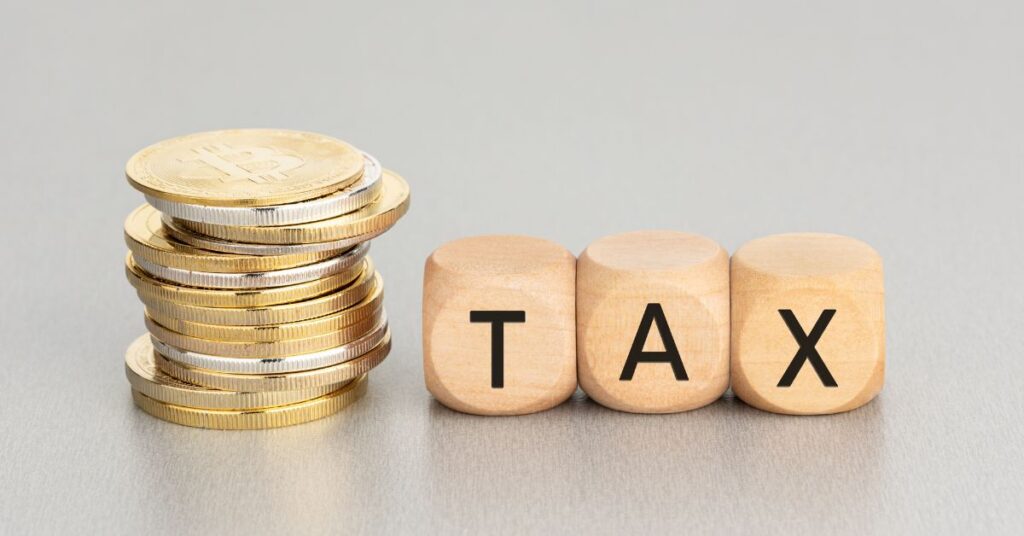Are you curious about how to navigate the complex world of cryptocurrency taxes? As the popularity of cryptocurrencies like Bitcoin, Ethereum, and Litecoin continues to soar, so does the importance of understanding the tax implications associated with these digital assets. In this guide, we’ll break down everything you need to know about cryptocurrency taxes clearly and concisely.
Contents
- 1 What is Cryptocurrency Taxation?
- 2 Do You Have to Pay Taxes on Cryptocurrency?
- 3 Types of Cryptocurrency Transactions Subject to Taxation
- 4 How Are Cryptocurrency Taxes Calculated?
- 5 Capital Gains Tax
- 6 Reporting Cryptocurrency Transactions
- 7 Tax Forms for Cryptocurrency
- 8 Strategies for Minimizing Cryptocurrency Taxes
- 9 The Importance of Tax Compliance
- 10 Seeking Professional Advice
- 11 Conclusion
What is Cryptocurrency Taxation?
Cryptocurrency taxation refers to the process of reporting and paying taxes on your cryptocurrency transactions to the appropriate tax authorities. Just like any other form of income or investment, profits made from buying, selling, or trading cryptocurrencies are subject to taxation in many countries.

Do You Have to Pay Taxes on Cryptocurrency?
Yes, in most cases, you are required to pay taxes on your cryptocurrency transactions. The specific tax obligations vary depending on your country of residence, but in general, any profits you make from trading cryptocurrencies are considered taxable income.
Types of Cryptocurrency Transactions Subject to Taxation
- Buying and Selling Cryptocurrency: When you buy or sell cryptocurrency, any gains or losses you incur are typically subject to taxation. The difference between the purchase price and the selling price is considered a capital gain or loss.
- Trading Cryptocurrency: If you engage in cryptocurrency trading on platforms like Binance or Coinbase, each trade you make is considered a taxable event. This means you must report any gains or losses from these trades on your tax return.
- Mining Cryptocurrency: Cryptocurrency mining involves validating transactions on a blockchain network in exchange for rewards. Any cryptocurrency you earn through mining is considered taxable income and must be reported to the tax authorities.
- Receiving Cryptocurrency as Payment: If you receive cryptocurrency as payment for goods or services, the fair market value of the cryptocurrency at the time of receipt is considered taxable income.
How Are Cryptocurrency Taxes Calculated?
Calculating cryptocurrency taxes can be complex, but it generally involves determining the cost basis of your cryptocurrency and calculating any gains or losses based on this value. The cost basis is the original value of the cryptocurrency at the time you acquired it.

Capital Gains Tax
In many countries, including the United States, capital gains tax is applied to the profits you make from selling or trading cryptocurrency. Short-term capital gains, which are profits from assets held for less than a year, are typically taxed at a higher rate than long-term capital gains.
Reporting Cryptocurrency Transactions
When it comes time to report your cryptocurrency transactions to the tax authorities, it’s essential to keep detailed records of all your trades, purchases, sales, and mining activities. This information will help you accurately calculate your tax liability and ensure compliance with tax laws.
Tax Forms for Cryptocurrency
In the United States, taxpayers are required to report their cryptocurrency transactions on Form 8949 and Schedule D of their tax return. Other countries may have different forms or reporting requirements, so it’s essential to consult with a tax professional familiar with cryptocurrency taxation in your jurisdiction.
Strategies for Minimizing Cryptocurrency Taxes
While paying taxes on your cryptocurrency transactions is unavoidable, there are strategies you can employ to minimize your tax liability legally.
- Holding Period: Holding onto your cryptocurrency for more than a year before selling or trading it may qualify you for lower long-term capital gains tax rates.
- Tax-Loss Harvesting: If you have investments in cryptocurrency that have experienced losses, you can sell those assets to offset gains in other investments, thereby reducing your overall tax liability.
- Tax-Advantaged Accounts: Investing in cryptocurrency through tax-advantaged accounts like Individual Retirement Accounts (IRAs) or 401(k)s can help defer or reduce your tax liability on cryptocurrency gains.
- Gifts and Donations: Gifting cryptocurrency to friends or family or donating it to charitable organizations can help you avoid capital gains tax while also potentially qualifying for a tax deduction.
The Importance of Tax Compliance
While the decentralized and pseudonymous nature of cryptocurrency may lead some individuals to believe they can avoid taxation, it’s essential to understand that tax authorities are increasingly cracking down on non-compliance in the crypto space. Failing to report your cryptocurrency transactions accurately can result in hefty fines, penalties, or even criminal charges.

Seeking Professional Advice
Given the complexities of cryptocurrency taxation and the evolving regulatory landscape, seeking professional advice from a tax accountant or tax attorney who specializes in cryptocurrency taxation is highly recommended. They can provide personalized guidance based on your specific circumstances and help you navigate the intricacies of cryptocurrency taxation laws in your jurisdiction.
Conclusion
In conclusion, understanding and complying with cryptocurrency taxation laws is crucial for anyone involved in buying, selling, trading, or mining cryptocurrencies. By keeping accurate records of your transactions, understanding your tax obligations, and seeking professional advice when needed, you can ensure compliance with tax laws and minimize your tax liability while navigating the exciting world of cryptocurrency.